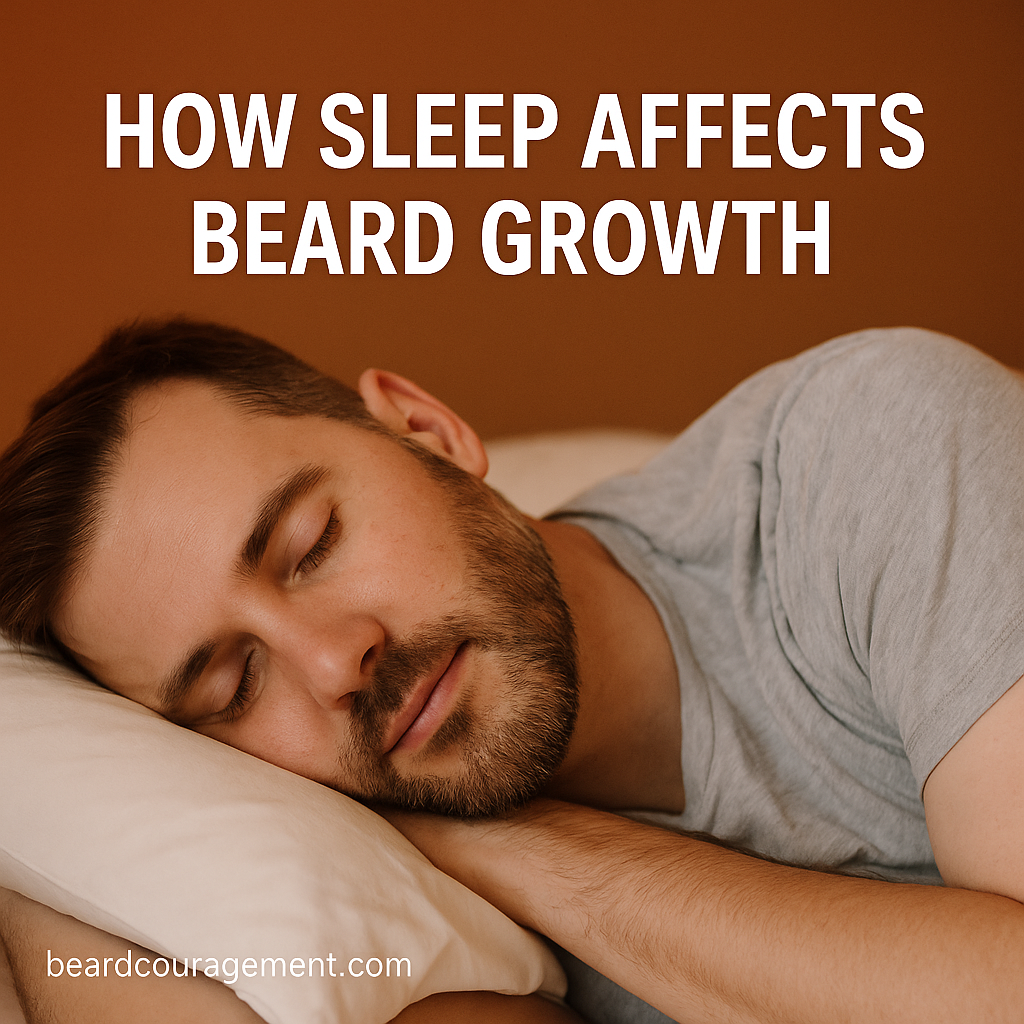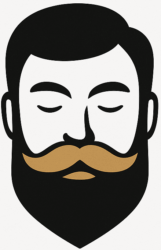
You’ve probably heard that diet and genetics play a role in beard growth — but did you know that your sleep habits are just as important?
Your beard grows while you rest. During sleep, your body repairs tissue, balances hormones, and regenerates cells — all critical for healthy facial hair growth. If you’re not getting enough quality rest, your beard might be paying the price.
Let’s explore how sleep directly affects beard growth and what you can do to improve both your rest and your results.
The Science Behind Sleep and Beard Growth
When you sleep, your body enters a repair and recovery mode. This process fuels everything from muscle recovery to skin rejuvenation — and yes, hair growth.
Beard hair, like all hair, grows in cycles. These cycles depend on hormone regulation, cell renewal, and nutrient distribution — three processes that are at their peak during deep sleep.
In simple terms: quality sleep = higher hormone levels + stronger cells = better beard growth.
The Hormonal Connection
Sleep directly influences two key hormones essential for beard growth: testosterone and DHT (dihydrotestosterone).
1. Testosterone
This is the primary hormone responsible for stimulating beard follicles. During deep sleep — particularly the REM stages — testosterone levels rise naturally.
Studies show that men who sleep 7–9 hours per night maintain up to 20% higher testosterone levels than those who sleep less than five hours.
Low sleep = low testosterone = slower beard growth.
2. DHT (Dihydrotestosterone)
DHT is derived from testosterone and helps activate dormant hair follicles on the face. Proper sleep ensures that this conversion process functions smoothly.
When you’re sleep-deprived, your body produces more cortisol (the stress hormone), which interferes with DHT production — leading to patchier or slower beard growth.
How Poor Sleep Hurts Your Beard
Chronic lack of rest affects beard growth in several ways:
- Reduced hormone levels: Less testosterone means weaker follicle stimulation.
- Slower cell regeneration: Damaged or tired cells can’t support thick, healthy hair.
- Increased stress: Elevated cortisol restricts blood flow to hair follicles.
- Weaker immune system: Inflammation and skin irritation can worsen patchiness or dryness.
Even if you’re using beard oils or supplements, poor sleep can undo much of that progress.
How to Improve Sleep for Better Beard Growth
1. Stick to a Consistent Sleep Schedule
Go to bed and wake up at the same time each day — even on weekends. A steady rhythm strengthens your body’s natural hormone cycle.
2. Create a Calming Pre-Sleep Routine
Avoid screens an hour before bed. Instead, stretch, read, or meditate to lower stress levels.
Pro Tip: Groom your beard before bed — the simple act of brushing and applying beard oil can serve as a mindful, relaxing ritual.
3. Optimize Your Sleep Environment
- Keep your room cool and dark.
- Invest in a comfortable pillow that supports your neck and reduces tossing.
- Try natural scents like lavender or cedarwood — both promote calm and are common in beard oils.
4. Prioritize Nutrition and Hydration
Foods rich in magnesium, zinc, and omega-3s promote both deeper sleep and healthy beard growth. Avoid caffeine or heavy meals too close to bedtime.
5. Manage Stress Levels
Stress increases cortisol, which directly counteracts the testosterone you need for growth. Practice breathing techniques or light exercise to unwind before sleeping.
How Much Sleep Do You Really Need?
Most adults need 7–9 hours of quality sleep each night to maintain optimal hormone function and cell repair.
If you’re consistently sleeping less than six hours, you’re likely hindering your beard’s natural growth potential — no matter how strong your genetics are.
Remember: your beard doesn’t grow while you work — it grows while you rest.
Final Thoughts
Sleep is one of the most overlooked yet powerful tools for beard growth. It doesn’t cost a thing, but its impact is massive.
Getting enough rest keeps your hormones balanced, your skin healthy, and your beard follicles active. Combine solid sleep with proper grooming, nutrition, and patience — and you’ll notice your beard not only growing faster, but looking fuller and healthier too.
A better beard starts with better sleep — because real growth happens when you rest.
